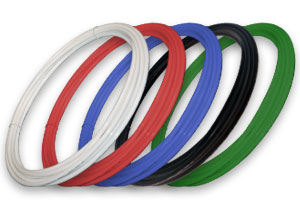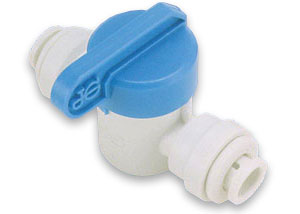
Calcite Media
Calcite is a naturally occurring calcium carbonate media. One of the advantages of Calcite is its self-limiting property. When properly applied, it corrects pH only enough to reach a non-corrosive equilibrium. It does not overcorrect under normal conditions. Upon contact with Calcite, acidic waters slowly dissolve the calcium carbonate to raise the pH which reduces the potential leaching of copper, lead and other metals found in typical plumbing systems. Periodic backwashing will prevent packing, reclassify the bed and maintain high service rates. Depending on pH, water chemistry and service flow, the media bed will have to be periodically replenished as the the media is depleted.
As the Calcite’s calcium carbonate neutralizes the water, it will increase hardness and a softener may become necessary after the neutralizing filter.
Calcite can be effectively combined with Clack Calcite to combine the high flow neutralization properties of the media, along with the slower reacting low flow properties of the media, increasing the ability to correct low pH.
 |
 |
Text and images have been taken from the Clack Corporation web site.
| Advantages |
|---|
| Low uniformity coefficient for maximum contact for controlled pH correction |
| Slower reacting for controlled pH correction |
| Inexpensive |
| Physical Properties | |
|---|---|
| Color | Near white |
| Bulk Density | 90 lbs./cu. ft. |
| Mesh Size | 16 × 40 |
| Specific Gravity | 2.7 gm/cc |
| Effective Size | 0.4 mm |
| Uniformity Coefficient | 1.5 |
| Composition | CaCO3, 95% min. MgCO3, 3.0% max. |
| Conditions for Operation | |
|---|---|
| A gravel support bed is recommended | |
| Water pH range | 5.0-7.0 |
| Bed depth | 24-30 in. |
| Freeboard | 50% of bed depth (min.) |
| Backwash rate | 8-12 gpm/sq. ft. |
| Backwash Bed Expansion | 35% of bed depth |
| Service flow rate | 3-6 gpm/sq. ft. but may be modified to adapt to local conditions |
















